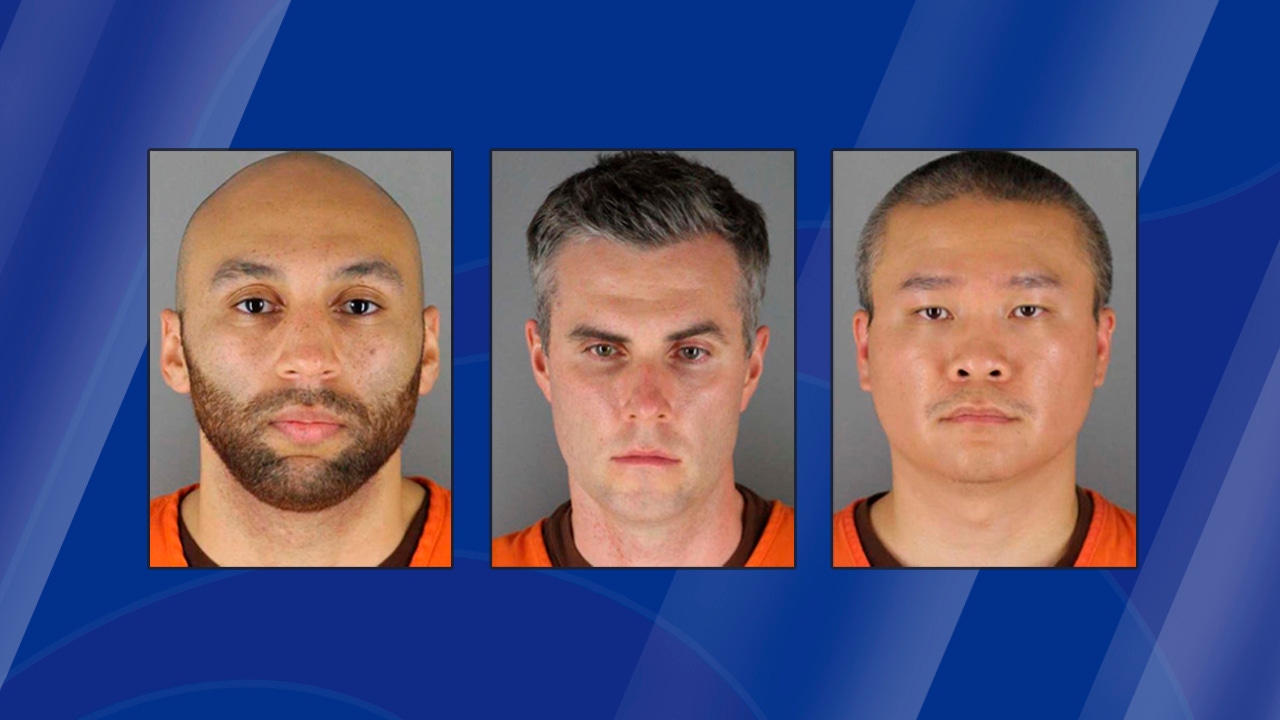Judge’s order prohibits cameras during trial of ex-officers charged in George Floyd’s death
[anvplayer video=”5104994″ station=”998122″]
Judge Peter Cahill issued a new decision late Monday to prohibit cameras in the courtroom for the upcoming trial of three former Minneapolis police officers charged in connection with George Floyd’s 2020 death.
A media coalition, which included KSTP, as well as prosecutors had requested access for cameras in the courtroom to cover the trial of former officers J. Alexander Kueng, Thomas Lane and Tou Thao.
Cahill’s decision to prohibit cameras cites previous rulings on livestreaming: “The Court acknowledged that it was allowing more extensive audio and video coverage than is permitted” by existing statutes. “The Court did not do so lightly, but out of necessity in light of the vicissitudes of the ongoing public health pandemic.”
Once COVID-19 restrictions began to ease in the state, in-person trials began increasing.
Now, as Judge Cahill states in his decision, the weeks set for the upcoming trial for the three former officers “are materially different from those the Court confronted from November 2020 through April 2021 with the Chauvin trial.”

3 former Minneapolis police officers will stand trial in Minnesota.
The trial of former Minneapolis police officer Derek Chauvin was the first case in Minnesota to allow cameras in the courtroom.
“Minnesota has a long and rather, in my opinion, sad history about cameras in the courts but the most recent rule says with most criminal proceedings both parties must consent to the presence of cameras, both the defendant and the prosecutor,” said Kirtley. “I want to give Judge Cahill credit, he was put in a very difficult position. He really stuck his neck out by allowing cameras in the Chauvin trial.”
Kirtley has testified in support of cameras in the courtroom to a State Supreme Court Advisory Committee that has been meeting to look at whether more video coverage should be allowed in criminal trial proceedings. The Committee is expected to release recommendations this summer.
“People got accustomed the cameras in the courts after Chauvin and [the Kimberly] Potter [trial] and I think it’ll be hard for them to understand why they’re being denied that kind of access,” she said.
Jury selection for the trial of Kueng, Lane and Thao is set to begin June 14.
They’re each charged with aiding and abetting second-degree murder and aiding and abetting second-degree manslaughter.
View the full decision below.
“I think Judge Cahill is trying to follow the law to the letter but still it’s very unfortunate we won’t have the wide viewership,” said Mark Osler, a University of St. Thomas Law professor, who noted benefits to the Chauvin livestream. “It led to people believing in that conviction in a way that probably wouldn’t have happened without the cameras in the courtroom.”
Osler doesn’t believe the judge’s ruling will affect how the legal teams present their cases but it could influence who travels to the Twin Cities. He thinks COVID could still affect the trial.
“I think what we’re going to see is a lot more national media come to Minneapolis for this and they’re going to come from places like Washington D.C. and New York where infection levels are higher than they are here,” said Mark Osler, a University of St. Thomas Law professor.
In February, a federal jury convicted the three former officers after they were charged with violating George Floyd’s civil rights.
RELATED: Jury convicts 3 ex-Minneapolis officers of violating George Floyd’s civil rights
The three were charged with depriving Floyd of his right to medical care when Chauvin pressed his knee into Floyd’s neck for 9 1/2 minutes on May 25, 2020, as Floyd pleaded for air.